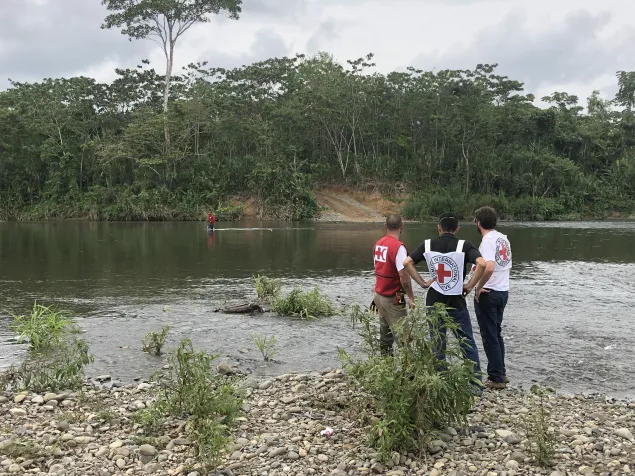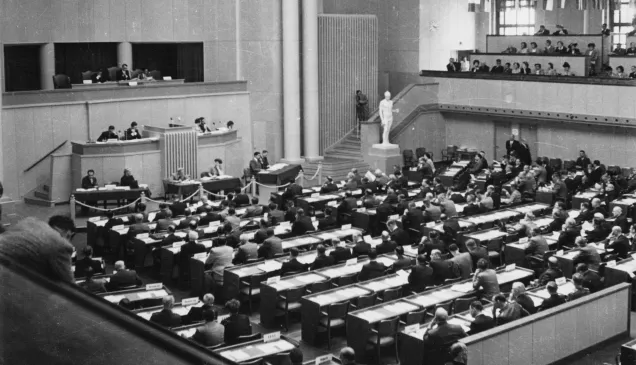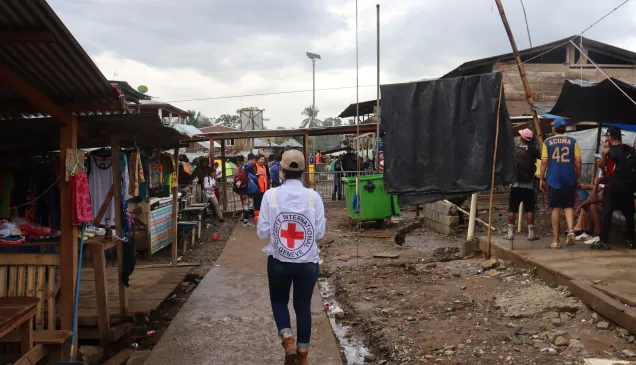One call away: In Panama, helping bring migrants in Darién closer to their families
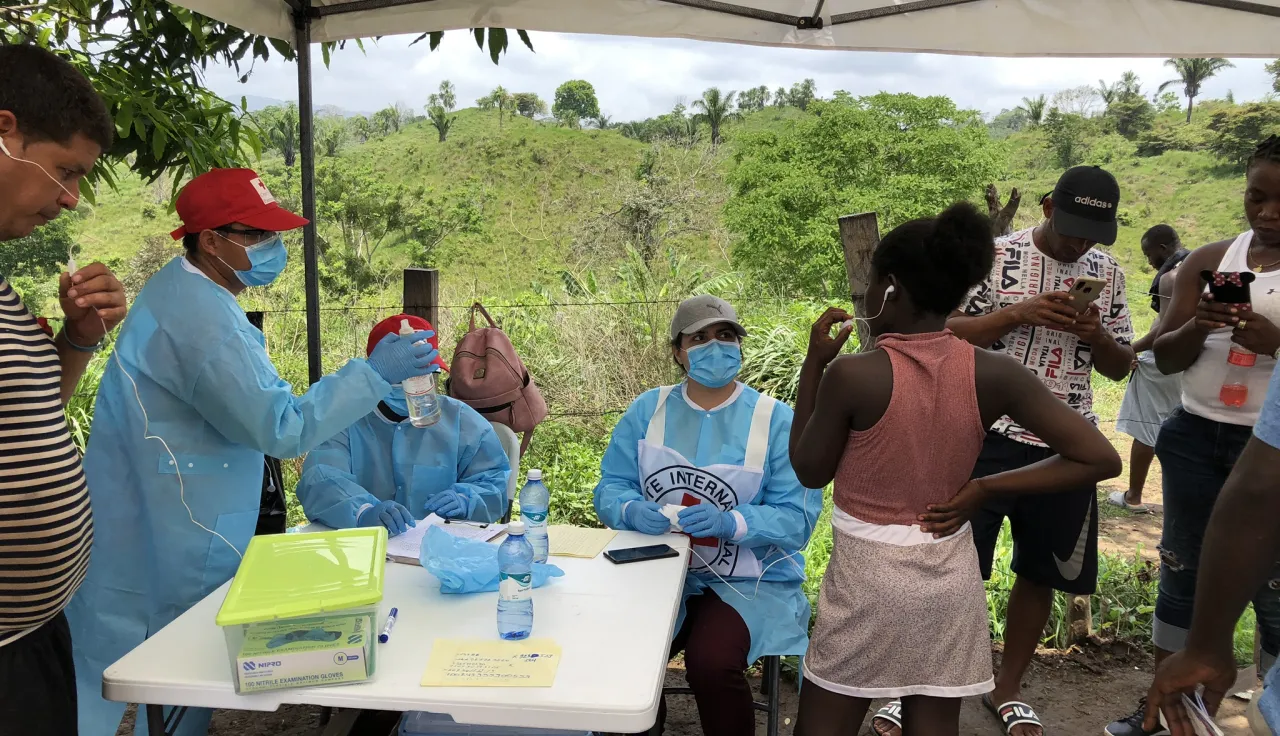
The road travelled by those arriving at the Migrant Receiving Station in La Peñita, Panama, is long and dangerous enough, yet migrants still have several borders and thousands more kilometres ahead of them. At this station in the jungle, our colleagues from the Panamanian Red Cross (PRC) provide Restoring Family Links (RFL) services, which enable migrants to communicate with their loved ones.
This week we accompanied the PRC and the International Federation of Red Cross and Red Crescent Societies (IFRC) in providing these services, and we also helped to distribute mosquito nets in La Peñita. In addition, alongside our colleagues from the Red Cross Movement, we visited the Bajo Chiquito community, which is the first place reached by migrants.
True teamwork
8 May was World Red Cross and Red Crescent Day, and our colleagues in Panama celebrated by working as a true team. That day, while visiting Darién, one of the IFRC cars got stuck due to rugged terrain and an ICRC vehicle came to the rescue. "Henry Dunant (founder of the Movement) would be proud," joked Andrea, an ICRC staff member.
María Mosquera is a student of general education, mother of two young children, and has volunteereed for the 'El Real' committee in Darién for three years. Previously, she was involved with first aid, health, water and sanitation activities in La Peñita, and she currently volunteers for the PRC´s RFL programme in that same area.
She tells us she is most moved when she witnesses migrant children hearing the voice of a loved one again. "It´s something that can´t be faked," she says.
(video in Spanish)
Chancel, from Congo to Darién
Chancel left the Democratic Republic of the Congo in search of other destinations, and has now been in La Peñita for two months. He is especially familiar with the Red Cross and the ICRC´s work in war-torn areas in his country of origin.
"This (RFL) service is very beneficial since many here do not own a phone. Our silence on social media, the fact that we last connected months ago, is a worry for our relatives," he says. These phone calls are not only valuable for migrants, they also bring joy to the relatives who receive them, he explains.
In gratitude, before departing, Chancel offered to help the Red Cross in any way necessary.
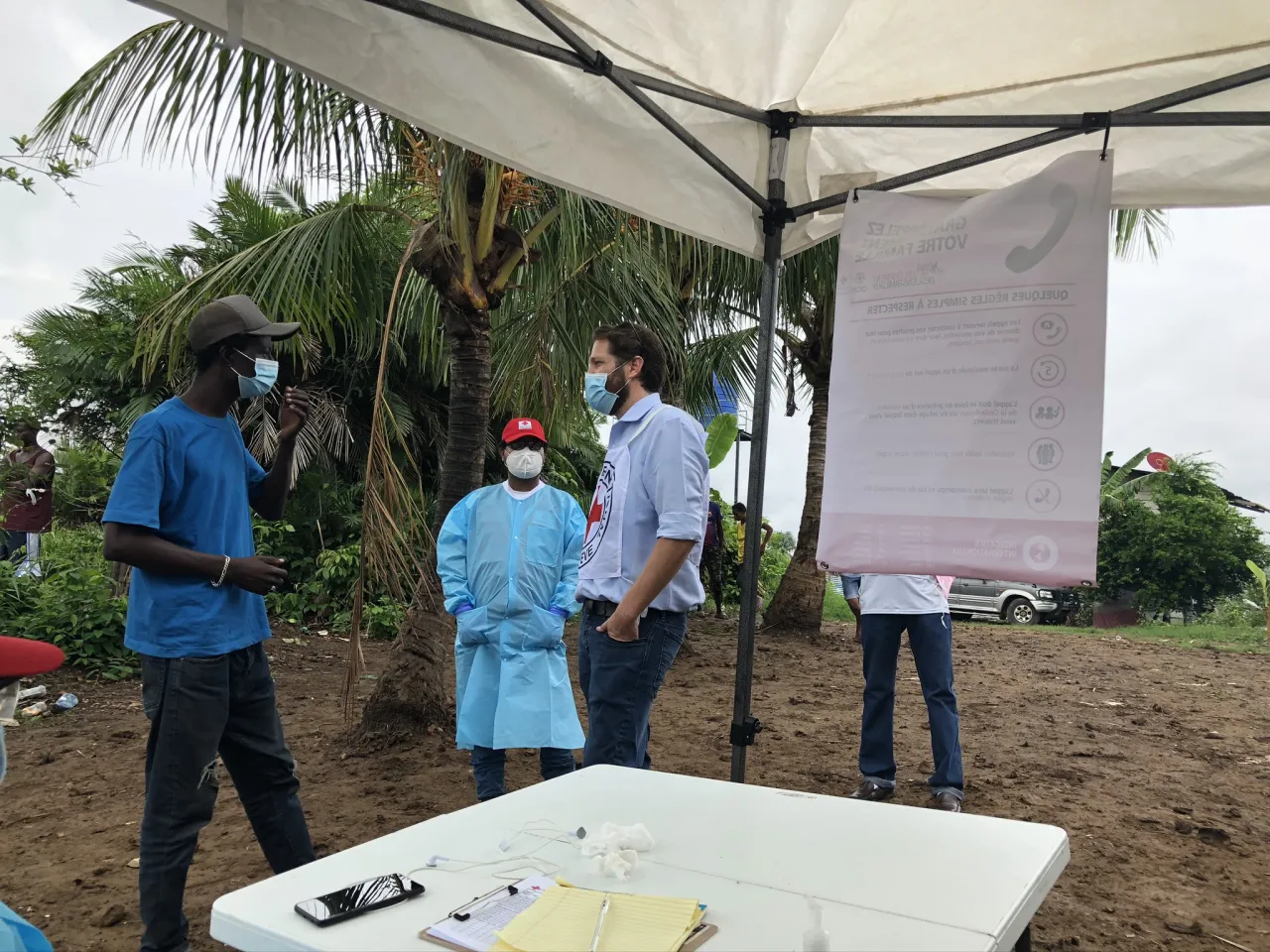
Through the International Red Cross and Red Crescent Movement’s RFL services, PRC volunteers help migrants who need to contact their families to make phone calls. Darién, Panama. Andrea RIERA / ICRC
From worry to laughter
"I have seen many solemn-looking migrants who were worried about living conditions on the migration journey. However, when they made the call and heard the voice of their relatives, they broke out in contagious laughter," says Andrea Riera, the ICRC cooperation officer and member of the mission to Darién. One person, she adds, spoke Lingala, a Bantu language that is spoken in the northwest of the Democratic Republic of the Congo, which few people in La Peñita understood. "But their laughter was so infectious that all of us nearby started laughing," she recalls.
He looked so happy... that we were happy for him.
Andrea Riera, ICRC cooperation officer in Panama
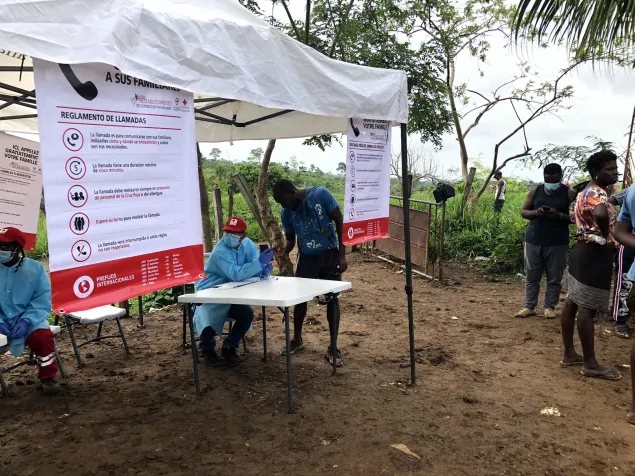
The work of the Movement in Darién
The ICRC, together with the PRC and the IFRC, work to meet the needs of migrants arriving in Panama, with a special focus on Darién, which still has one of the most dangerous routes in the world given its jungled portion of land and its extremely humid climate. Migrants face a huge number of risks, ranging from lack of access to health care, dehydration, food shortage, illness, to more serious risks such as physical trauma, kidnapping, sexual violence and extortion, or even disappearances and sometimes death.
The ICRC provides technical and financial support to the PRC, particularly for the Darién committee, and also implements RFL services.
Phone calls to relatives can be made at the Migrant Receiving Station in La Peñita and there are plans to extend this service to include the search for relatives with whom they have lost contact or who are missing, and to install Internet communication stands.
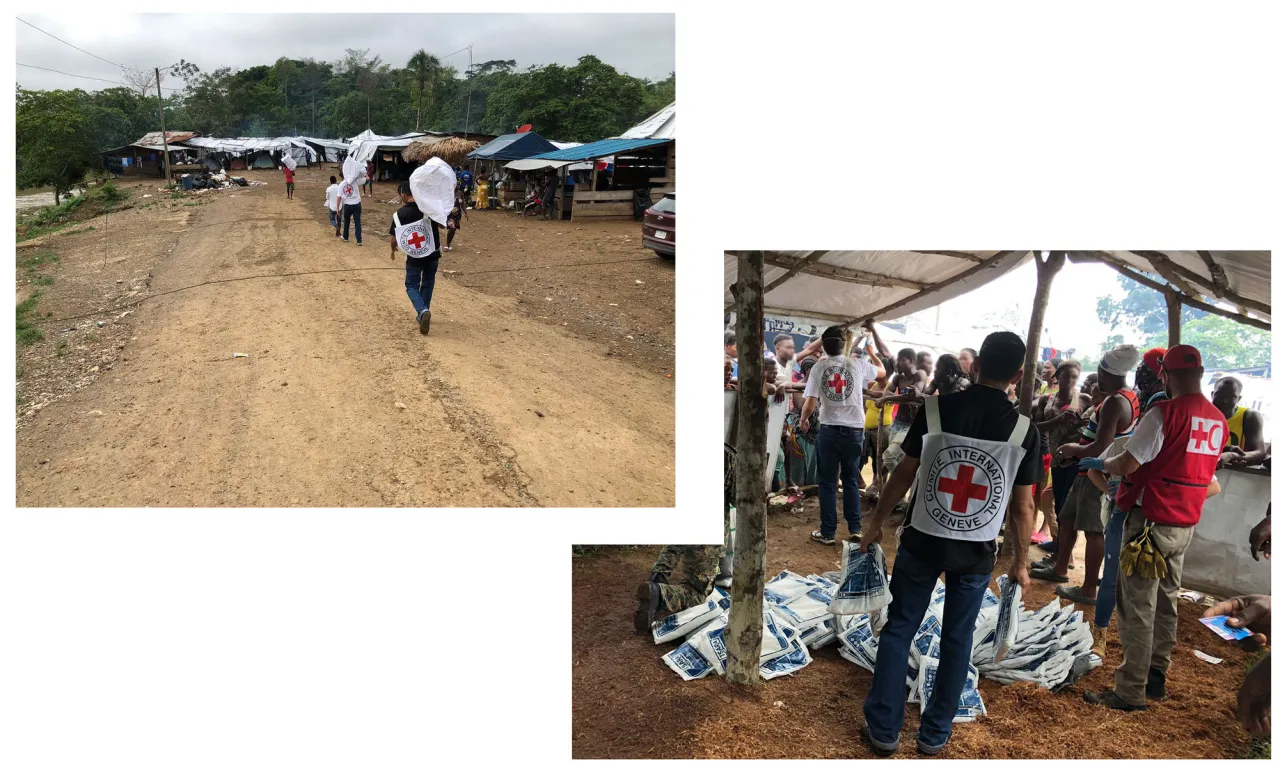
The ICRC members support the IFRC by providing mosquito nets for migrants in order to prevent mosquito-borne diseases such as dengue and malaria. Darién, Panama. Andrea RIERA / ICRC
Migrants in Darién and COVID-19
At the onset of the crisis caused by COVID-19, the ICRC provided personal protection equipment for PRC staff to enable them to safely carry out their work to help the migrant population.
"Migrants remain a priority and they are even more affected by and vulnerable to COVID-19. We continue to be guided by the principles of humanity, neutrality, impartiality and independence, and to support the PRC in accordance with our capabilities," explained the head of the ICRC regional delegation in Panama, Giuseppe Renda.
"It is essential to prepare and protect PRC staff who may be exposed to possible contamination. In this regard, we are pleased to be able to support our PRC colleagues so that their teams can safely provide humanitarian assistance when and where it is needed," added Sebastian Bustos, the ICRC protection delegate in Panama.
